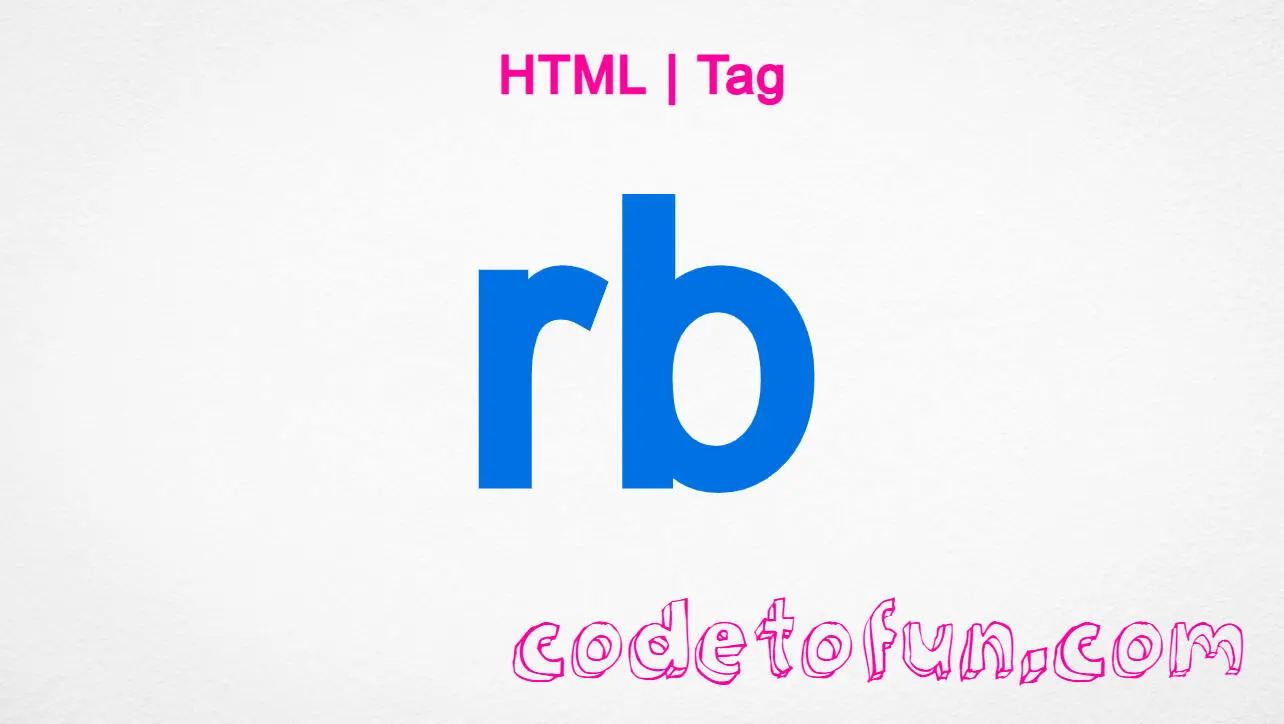
HTML Basic
HTML Reference
- HTML Tags
- <!--...-->
- <!DOCTYPE>
- <a>
- <abbr>
- <address>
- <area>
- <article>
- <aside>
- <audio>
- <b>
- <base>
- <bdi>
- <bdo>
- <blockquote>
- <body>
- <br>
- <button>
- <canvas>
- <caption>
- <cite>
- <code>
- <col>
- <colgroup>
- <data>
- <datalist>
- <dd>
- <del>
- <details>
- <dfn>
- <dialog>
- <div>
- <dl>
- <dt>
- <em>
- <embed>
- <fieldset>
- <figcaption>
- <figure>
- <footer>
- <form>
- <h1> to <h6>
- <head>
- <header>
- <hgroup>
- <hr>
- <html>
- <i>
- <iframe>
- <img>
- <input>
- <ins>
- <kbd>
- <label>
- <legend>
- <li>
- <link>
- <main>
- <map>
- <mark>
- <menu>
- <meta>
- <meter>
- <nav>
- <noscript>
- <object>
- <ol>
- <optgroup>
- <option>
- <output>
- <p>
- <param>
- <picture>
- <pre>
- <progress>
- <q>
- <rp>
- <rt>
- <ruby>
- <s>
- <samp>
- <script>
- <search>
- <section>
- <select>
- <small>
- <source>
- <span>
- <strong>
- <style>
- <sub>
- <summary>
- <sup>
- <svg>
- <table>
- <tbody>
- <td>
- <template>
- <textarea>
- <tfoot>
- <th>
- <thead>
- <time>
- <title>
- <tr>
- <track>
- <u>
- <ul>
- <var>
- <video>
- <wbr>
- HTML Deprecated Tags
- HTML Events
- HTML Global Attributes
- HTML Status Code
- HTML Language Code
- HTML Country Code
- HTML Charset
- MIME Types
HTML image tag

Photo Credit to CodeToFun
🙋 Introduction
In web development, images play a crucial role in enhancing the visual appeal and user experience of a website. However, the <image> tag, though it might sound intuitive, is not actually used in HTML.
This guide will explain why and provide alternatives for incorporating images into your web pages.
🤔 What is <image> Tag?
The <image> tag is a common misconception among new web developers. Unlike the widely-used <img> tag, there is no <image> tag in HTML. The correct tag for embedding images is <img>.
🚫 Deprecated Status:
The <image> tag has never been a part of the HTML specification and thus cannot be considered deprecated. It simply does not exist. Developers should use the <img> tag to insert images into their HTML documents.
💡 Syntax
Since the <image> tag does not exist, here's the syntax for the <img> tag, which is the correct way to embed images:
<img src="image_url.jpg" alt="Description of Image">🧰 Attributes
The <img> tag comes with several important attributes:
- src: Specifies the path to the image file.
- alt: Provides alternative text for the image, which is crucial for accessibility.
- width and height: Define the dimensions of the image.
- title: Offers additional information about the image when hovered over.
Example:
<img src="image_url.jpg" alt="A beautiful scenery" width="600" height="400">📚 Common Use Cases
Embedding Images:
The primary use of the <img> tag is to embed images into web pages.
index.htmlCopied<img src="example.jpg" alt="Example Image">Responsive Images:
To ensure images scale properly across different devices, the srcset and sizes attributes can be used.
index.htmlCopied<img src="small.jpg" srcset="large.jpg 1024w, medium.jpg 640w" sizes="(max-width: 600px) 100vw, 50vw" alt="Responsive Image">
🖥️ Browser Support
The <img> tag is universally supported across all modern and even older browsers:
- Google Chrome: Fully supported.
- Mozilla Firefox: Fully supported.
- Microsoft Edge: Fully supported.
- Safari: Fully supported.
- Opera: Fully supported.
- Internet Explorer: Fully supported.
Ensure you test your code in various browsers to guarantee a seamless experience for your audience.
🏆 Best Practices
- Always include the alt attribute to improve accessibility and SEO.
- Use responsive image techniques to ensure images look good on all devices.
- Optimize image file sizes to improve page load times.
- Use appropriate image formats (JPEG, PNG, SVG) depending on the use case.
🔄 Alternatives
While the <img> tag is the standard for embedding images, there are alternative methods for including images in web content:
🎉 Conclusion
Understanding the correct use of HTML tags is essential for effective web development. While the <image> tag does not exist, the <img> tag provides a robust and versatile way to embed images into your web pages.
By following best practices and leveraging modern techniques, you can ensure that your images enhance the user experience and accessibility of your website.
👨💻 Join our Community:
Author

For over eight years, I worked as a full-stack web developer. Now, I have chosen my profession as a full-time blogger at codetofun.com.
Buy me a coffee to make codetofun.com free for everyone.
Buy me a Coffee










